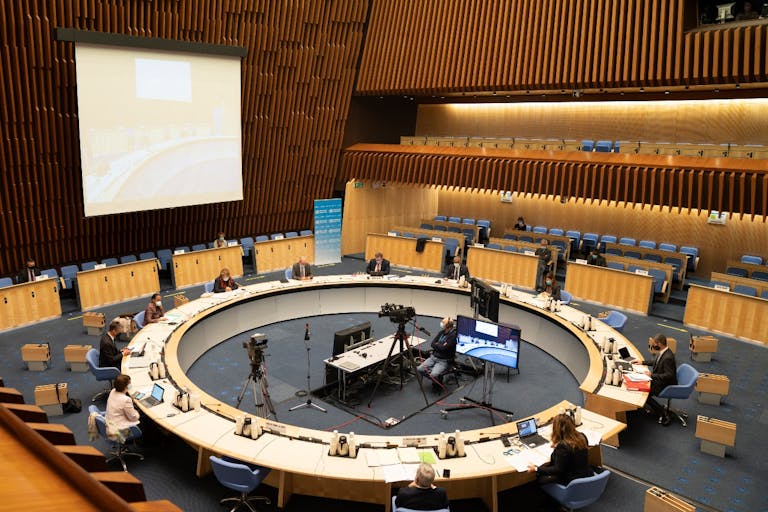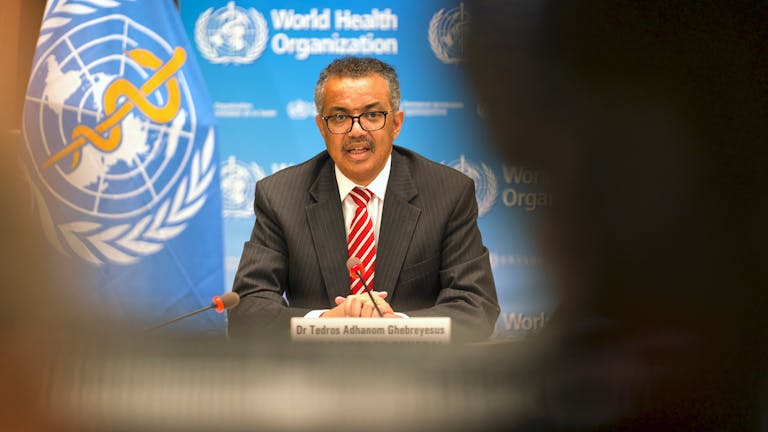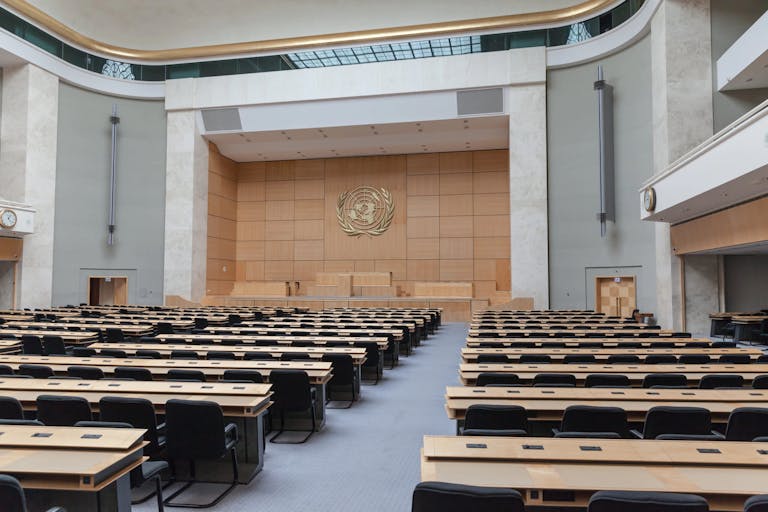This year’s World Health Assembly may be the most pivotal in history. As the world still battles COVID-19 and tries to speed an end to the pandemic through some of the most unprecedented global partnerships in history, all eyes are on health. Following on the heels of the G20 Global Health Summit, the World Health Assembly will cover its largest number of topics ever, with discussions centering on reforms, financing, and a potential pandemic treaty to help prevent future pandemics before they start and ensure more resilient health systems for all.

Amid the ongoing pandemic, the 74th World Health Assembly (WHA) will once again bring together heads of state, ministers of health, and other global health leaders virtually. This year’s WHA, from May 24 to June 1, may be the most pivotal Assembly ever as the world’s leaders continue to battle COVID-19, including its economic and health impacts, and look toward collective solutions to stop the spread and get the world back on track to achieve the health-related Sustainable Development Goals (SDGs). Coming on the heels of the G20 Global Health Summit and leading into the G7 summit, this year’s WHA will be a forum for important high-level discussions on pandemic preparedness, sustainable financing, and shoring up our health systems for the future. Below are the three hot topics to watch for throughout the week.
Ending the Current Pandemic
As we’ve watched case counts rise and death tolls mount and wave after wave of COVID-19 epicenters emerge over the last 15-plus months, global health and governmental leaders are reckoning with how to accelerate an end to the pandemic and reopen economies. While we have come remarkably far since the last WHA one year ago, with multiple safe, effective, and reliable COVID-19 tools being rolled out around the world, a new problem has emerged: a world starkly divided along access lines. Many high-income countries are expanding vaccine access to nonpriority populations at the same time that high-risk front-line workers in many lower-income countries have not been vaccinated. We are seeing two worlds emerge: the haves and have-nots.
During the G20 Global Health Summit, countries stepped up to make some commitments to the Access to COVID-19 Tools Accelerator (ACT-A), the world’s only collective action mechanism to get COVID-19 tests, treatments, and vaccines to everyone, everywhere. Following the Biden Administration’s announcement that it will provide a total of 80 million COVID-19 vaccines, Summit participants committed to sharing an additional 100 million-plus doses. It will be critically important these doses are shared via COVAX, the ACT-A’s vaccine pillar, to ensure they get to where they are most needed as quickly and efficiently as possible. G20 leaders also made announcements of additional funding toward the significant ACT-A funding gaps that remain for 2021, but much more needs to be done by the world’s wealthiest countries if we want to have a chance to stop the pandemic everywhere any time soon.

At WHA, many country leaders will share what progress they’ve made on responding to the COVID-19 pandemic and what will be needed to truly end the pandemic for everyone, everywhere. While some countries may be closer to a recovery phase than others, it is clear that the longer the pandemic continues in any part of the world, we’re all at risk. It is also clear that the only way to end the pandemic will be to work together and tackle this enormous global challenge through collective action and collaboration.
Stopping the Next Pandemic Before It Starts
COVID-19 has shown us that the world was woefully unprepared for a global pandemic. Global health experts are calling on world leaders to heed lessons learned from this experience to strengthen preparedness for the next potential global health threat. During WHA, discussions will likely center on three recent reviews to the global COVID-19 response, identifying suggested future reforms to global health policies, systems, and regulations. These discussions will be a throughline from the G20 Global Health Summit, where leaders agreed on the Rome Declaration outlining collective commitments to financing and strengthening health systems, into the G7 summit and the UN General Assembly later this year where additional policy and financing decisions will be taken up. Solutions to sustainable financing for the World Health Organization (WHO) and other global health institutions, reforms to global health governance bodies and warning systems, and even a potential pandemic treaty among Member States must all be decided.

Discussions will undoubtedly be politically fraught, balancing the need for countries to have sovereignty over their data, trade, and travel with the global security interest of sensitive and stronger preparedness and response capacities. Requests for investments in stronger surveillance systems and data sharing centers, as well as manufacturing capacity, come at a time when global economies are reeling and trillions in stimulus funding have already been allocated. However, we know the current investments, regulations, and systems are woefully insufficient. COVID-19 has made it clear that we cannot continue to go through cycles of neglect and crisis and that we must use this moment to invest in the systems we need that will keep people safe and healthy and prevent the next pandemic before it starts.
Getting Back on Track to Achieve Global Health Goals
Other items on the WHA agenda will address ongoing global health issues that existed before the pandemic upended health systems and set back 25 years of progress in an estimated 25 weeks. To understand progress made to date on SDG3 (health and well-being for all), WHO recently published its 2020 Results Report. The report outlines WHO’s leadership and coordination of the global response to COVID-19, as well as the world’s other health issues, which persist every day, pandemic or not. This report demonstrates that the pandemic has presented huge challenges to achieving our collective health goals, and that the time is more urgent than ever to strengthen health systems. During WHA, discussions on many non-COVID-19 agenda items will be particularly important to address health services that have been significantly affected by the pandemic and help get progress toward global health goals back on track.
One spotlight is likely to be on immunization. WHA participants will discuss future needs to finally reach global eradication of wild polio. Participants will also take forward the implementation, monitoring, and evaluation plan of the new Immunization Agenda 2030, a global road map for the next decade to integrate immunization services to reach people everywhere with lifesaving vaccines. Other important topics that will be addressed include mental health, antimicrobial resistance, and the health workforce — all of which will be essential to address if we want to deliver on the promise of health and well-being for all.
You can follow the full WHA program here throughout the week.
Featured Photo: Laurent Cipriani/ WHO



 View All Blog Posts
View All Blog Posts

